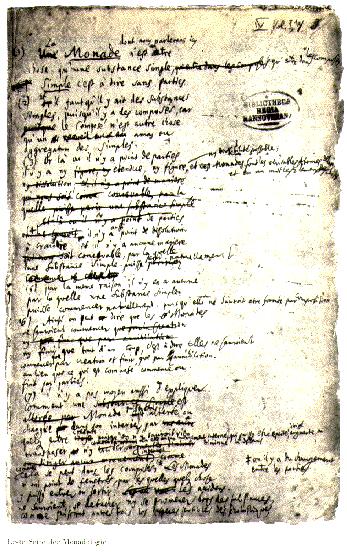|
Interactionist Dualism
Interactionism or interactionist dualism is the theory in the philosophy of mind which holds that matter and mind are two distinct and independent substances that exert causal effects on one another. It is one type of dualism, traditionally a type of substance dualism though more recently also sometimes a form of property dualism. Many philosophers and scientists have responded to this theory with arguments both supporting and opposing its relevance to life and whether the theory corresponds to reality. Proponents René Descartes Interactionism was propounded by the French rationalist philosopher René Descartes (1596–1650), and continues to be associated with him. Descartes posited that the body, being physical matter, was characterized by spatial extension but not by thought and feeling, while the mind, being a separate substance, had no spatial extension but could think and feel. Nevertheless, he maintained that the two interacted with one another, suggesting that thi ... [...More Info...] [...Related Items...] OR: [Wikipedia] [Google] [Baidu] |
Philosophy Of Mind
Philosophy of mind is a branch of philosophy that studies the ontology and nature of the mind and its relationship with the body. The mind–body problem is a paradigmatic issue in philosophy of mind, although a number of other issues are addressed, such as the hard problem of consciousness and the nature of particular mental states.Siegel, S.: ''The Contents of Visual Experience''. New York: Oxford University Press. 2010.Macpherson, F. & Haddock, A., editors, ''Disjunctivism: Perception, Action, Knowledge'', Oxford: Oxford University Press, 2008. Aspects of the mind that are studied include mental events, mental functions, mental property, mental properties, consciousness and neural correlates of consciousness, its neural correlates, the ontology of the mind, the nature of cognition and of thought, and the relationship of the mind to the body. Dualism (philosophy of mind), Dualism and monism are the two central schools of thought on the mind–body problem, although nuanced vie ... [...More Info...] [...Related Items...] OR: [Wikipedia] [Google] [Baidu] |
David Chalmers
David John Chalmers (; born 20 April 1966) is an Australian philosopher and cognitive scientist specializing in the areas of philosophy of mind and philosophy of language. He is a professor of philosophy and neural science at New York University, as well as co-director of NYU's Center for Mind, Brain and Consciousness (along with Ned Block). In 2006, he was elected a Fellow of the Australian Academy of the Humanities. In 2013, he was elected a Fellow of the American Academy of Arts & Sciences. Chalmers is best known for formulating the hard problem of consciousness. He and David Bourget cofounded PhilPapers, a database of journal articles for philosophers. Early life and education Chalmers was born in Sydney, New South Wales, in 1966, and subsequently grew up in Adelaide, South Australia, where he attended Unley High School. As a child, he experienced synesthesia. He began coding and playing computer games at age 10 on a PDP-10 at a medical center. He also performed excep ... [...More Info...] [...Related Items...] OR: [Wikipedia] [Google] [Baidu] |
Monadology
The ''Monadology'' (french: La Monadologie, 1714) is one of Gottfried Leibniz's best known works of his later philosophy. It is a short text which presents, in some 90 paragraphs, a metaphysics of simple substances, or '' monads''. Text During his last stay in Vienna from 1712 to September 1714, Leibniz wrote two short texts in French which were meant as concise expositions of his philosophy. After his death, ''Principes de la nature et de la grâce fondés en raison'', which was intended for prince Eugene of Savoy, appeared in French in the Netherlands. Christian Wolff and collaborators published translations in German and Latin of the second text which came to be known as ''The Monadology''. Without having seen the Dutch publication of the ''Principes'' they had assumed that it was the French original of the ''Monadology,'' which in fact remained unpublished until 1840. The German translation appeared in 1720 as ''Lehrsätze über die Monadologie'' and the following year ... [...More Info...] [...Related Items...] OR: [Wikipedia] [Google] [Baidu] |
Gottfried Leibniz
Gottfried Wilhelm (von) Leibniz . ( – 14 November 1716) was a German polymath active as a mathematician, philosopher, scientist and diplomat. He is one of the most prominent figures in both the history of philosophy and the history of mathematics. He wrote works on philosophy, theology, ethics, politics, law, history and philology. Leibniz also made major contributions to physics and technology, and anticipated notions that surfaced much later in probability theory, biology, medicine, geology, psychology, linguistics and computer science. In addition, he contributed to the field of library science: while serving as overseer of the Wolfenbüttel library in Germany, he devised a cataloging system that would have served as a guide for many of Europe's largest libraries. Leibniz's contributions to this vast array of subjects were scattered in various learned journals, in tens of thousands of letters and in unpublished manuscripts. He wrote in several languages, primarily in Latin, ... [...More Info...] [...Related Items...] OR: [Wikipedia] [Google] [Baidu] |




